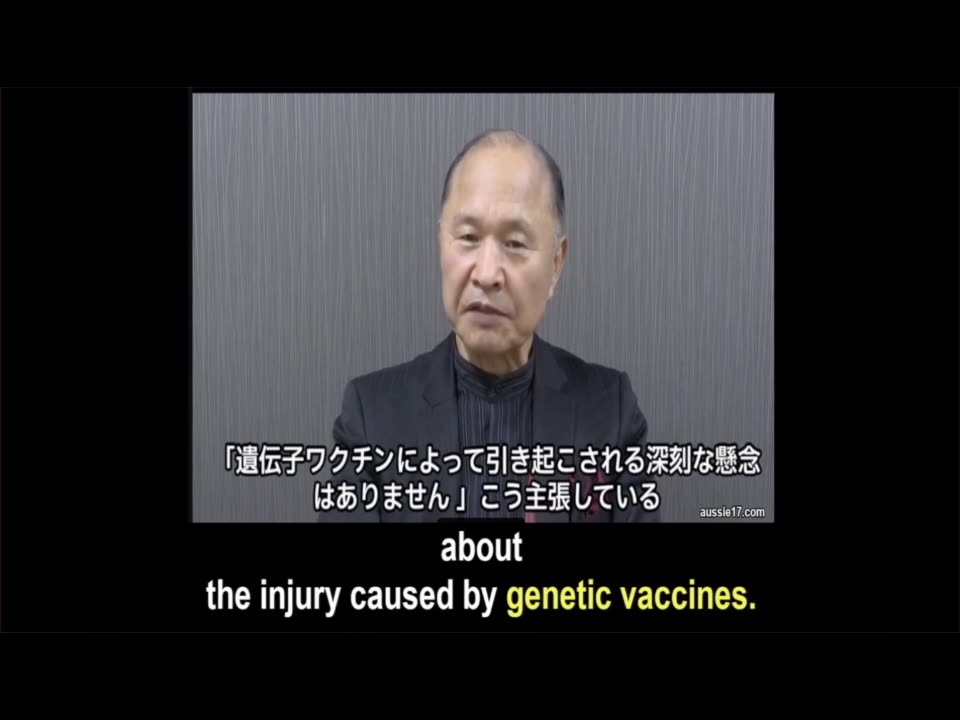
The word “anecdotal” is defined as something that is based on “personal observation, case study reports, or random investigations rather than systematic scientific evaluation.”1 Anecdotal evidence relies on personal accounts, stories shared by people about what happened to them or what they observed.2
In the ongoing debate about vaccine safety, anecdotal evidence of harm to individuals following vaccination is largely discounted because it is not considered science-based. Mandatory vaccination apologists within the medical community simply dismiss as unreliable, coincidental, or irrelevant all those testimonies by countless parents who are reporting:
My child was fine—perfectly healthy and meeting all developmental milestones—until vaccinations, after which in a matter of hours, or days, they had severe medical issues and/or began a regression into an autistic state, or simply stopped breathing and died.3
In an article in The Guardian titled “In praise of anecdotal evidence,” Dick Vinegar acknowledged, “The word anecdotal now seems to be regarded as a term of abuse in research circles.”4
What is interesting is that this seeming disdain for anecdotal evidence by many doctors is a relatively recent phenomenon. According to Vinegar, the discipline of “evidence-based medicine” (EBM) was developed during the 1970s and the term first appeared in the medical literature in 1992.4
Since then, there has been a steady move toward reliance on EBM and away from anecdotal evidence, which doctors and scientists have long relied on to make their diagnoses, discoveries and conclusions. But how much sense does that really make? Vinegar noted, for example, that so much of medical science is based on pre-EBM thinking:
I wonder whether the great scientists of the past—William Harvey with the circulation of the blood, Louis Pasteur with vaccination, Pierre and Marie Curie with X-rays and Alexander Fleming with penicillin—used such a rigorous discipline to make their groundbreaking discoveries. I ask myself whether today’s medical establishment would accept as “scientific” the evidence that backed up their magnificent breakthroughs. I have a sneaky suspicion that today’s doctors would pooh-pooh their evidence as “anecdotal”.4
All of these “groundbreaking discoveries” relied on anecdotal evidence. In other words, clinical observations of real people and case history studies, which serve to create a narrative and tell a story, can be extremely useful in guiding important medical research.
In a paper published in the journal PLOS Medicine, Ralph Campo wrote, “The irony in our growing intolerance of the anecdote is that storytelling is full of lessons in imagination and invention so beneficial to the creative investigator.”5 He added, “Whether we choose to admit it or not, the anecdote continues to be an important engine of novel ideas in medicine.”5
Many doctors believe in anecdotal evidence; they just don’t like to use the term. They prefer clinical observations and case studies.
In their 1985 book DPT: A Shot in the Dark, Harris Coulter and Barbara Loe Fisher wrote how Georges Peter, MD noted with “perception and humor” that when the vaccine safety advocacy group Dissatisfied Parents Together (DPT) described vaccine injury cases, it was called “anecdotal evidence” but when doctors did it, it was called “clinical observation.”6
But it is more than semantics. It also has to do with who is telling the story. If patients provide the anecdotal evidence, somehow that does not pass muster with many doctors. If doctors provide the same thing, that’s different.
This lack of respect for patients and openness to what they have to say is not confined to anecdotal evidence regarding harm, which the patients believed was caused by vaccines. It is part of broader problem within medicine in which conventional doctors are increasingly reluctant to listen to their patients.7 8 9
“My doctor doesn’t listen to me” is a perennial complaint in patient satisfaction surveys and group discussions.7
References:
1 anecdotal. Dictionary.com.
2 anecdotal. Vocabulary.com.
3 Brain Damage/Death from Vaccines is NOT Rare. Vaccine-Injury.info.
4 Vinegar D. In praise of anecdotal evidence. The Guardian Sept. 3, 2012.
5 Campo R. “Anecdotal Evidence”: Why Narratives Matter to Medical Practice. PLOS Medicine Oct. 24, 20o6.
6 Coulter HL, Fisher BL. DPT: A Shot in the Dark. Harcourt Brace Jovanovich 1985; Avery 1991.
7 Appleby C. Getting Doctors To Listen to Patients. Managed Care December 1996.
8 Drake D. Why Your Doctor Doesn’t Listen to You. The Daily Beast Sept. 11, 2014
9 Girgis L. Why Doctors Are Losing the Public’s Trust. Physician’s Weekly Feb. 20, 2015.














6 Responses
Years ago at a meeting organized by a doctor to discuss mercury toxicity amongst university professionals, I showed a magazine article to a dental school instructor. A partial quote:
“In August of 2001, Rita Shreffler of Nixa, Missouri, sent her son’s baby tooth to a lab… Wayne Middleton, of Middleton Microbiological & Environmental Testing Laboratory, was so astonished at Andy’s results that he even used his own children’s baby teeth as controls. Andy’s tooth registered a mercury level of 3,040 parts per billion.”
I’ll never forget that dental instructor’s breathless exclamation, “But… that’s ANECDOTAL!”
The 2004 article was “Toxic Tipping Point, in Mother Jones. And sadly that magazine’s current editors have caved to pharma-friendly consensus rather than investigating firsthand the abundance of corrupt CDC vaccine research. They’ve prefaced that groundbreaking article with the required boilerplate loyalty pledge claiming vaccines don’t cause autism.
http://www.motherjones.com/politics/2011/02/toxic-tipping-point/
“I ask myself whether today’s medical establishment would accept as “scientific” the evidence that backed up [history’s] magnificent breakthroughs.”
Depends on who stands to benefit, and who stands to lose.
Marco, an excellent and well written article. As a real estate appraiser I am obliged to follow non advocacy and unbiased decision making rules. Also I am specifically not allowed to be compensated under a results based or contingency based structure. That means nobody can pressure me to provide the beneficial research and report results, and with hold my pay if I provide something contrary to their expectations. I think such a similar approach where researchers got paid for the research not the results could completely change medicine as we know it, turning it back into something more noble and pure. Likely bringing a swell of new ideas and studies with it. The ongoing debate about safety in food, medicine, you name it, the root of conflict continues to revolve around for profit based research and development efforts where the producers pay the researchers rather than the consumers paying the researchers. Consortium of privately funded researchers not beholden to major corporations whom are not waiting for the government to complete proposed safety studies and will share all research results? Where do I give because I will. The focus on measurements is how some cover in real estate, but as they say, it’s an art not a science. Medicine should be no different. To require a measurement and claim there is no human emotion or other intangible but still very influential consideration, is to discount the intellectual capacity and living condition of humans in general. Their bias is more than apparent, it’s clearly beyond the well established ethical boundary line in other professions.
Once again, I remain puzzled as to how there can still be a public debate about vaccines and their possible complications when it is all spelled out in the manufacturers insert. Yes, they are dangerous and they can result in a host of complications that many people have already observed and mentioned including autism, a host of other nervous system disorders and of course that age old favorite…….death!
I think you may have misunderstood the role played by anecdotal evidence in the past (such as in the development of penicillin, X-rays etc). Anecdotal evidence is a crucial first step in most scientific and medical investigations. But that’s all it is – a first step. For something to turn from anecdotal evidence to clinical observation and proper evidence, you need to go further; standardised, observable tests that can be applied to the majority of the population at large. That is the only way to determine whether something is a real threat, or if they are, in fact, singular cases that can be attributed to “unreliable, coincidental, or irrelevant” testimony, as you put it.
In all of the historical cases you mentioned, anecdotal evidence played its role as the first step, which the scientists and researchers then used to build solid practices or develop new cures.
Similarly, as far as vaccines go, anecdotal evidence played its role. People made disturbing claims about vaccinations and as a response, these claims were investigated in the manner appropriate to all forms of anecdotal evidence. Debate began, studies were done, old studies were dug up and re-examined. And after all of this happened, it was determined by the medical boards and bodies that we trust (or should trust, anyway) that the anecdotal evidence that first led to this investigation was unfounded or, at least, built on ground that was shaky and unreliable enough that it would be reckless to make any kind of drastic conclusions about vaccinations as a whole.
Now, I’m not saying it’s out of the question that these medical boards and bodies are wrong whether purposefully or accidentally. I’m just saying that with regards to your article, you’ve made a simple but subtle mistake about the role of anecdotal evidence. It does have a place, and it did get considered, but it is ALSO the nature of anecdotal evidence (both now, and throughout history) to be dismissed if further research and evidence demonstrate that it was groundless to begin with.
“But that’s all it is – a first step”.
But that’s what this article is really about: The idiocy of refusing to take even that first step because of the arrogance of EBM above all else that the patient can reveal to the physician/scientist that leads to seeing the bigger picture as EBM is being collected.